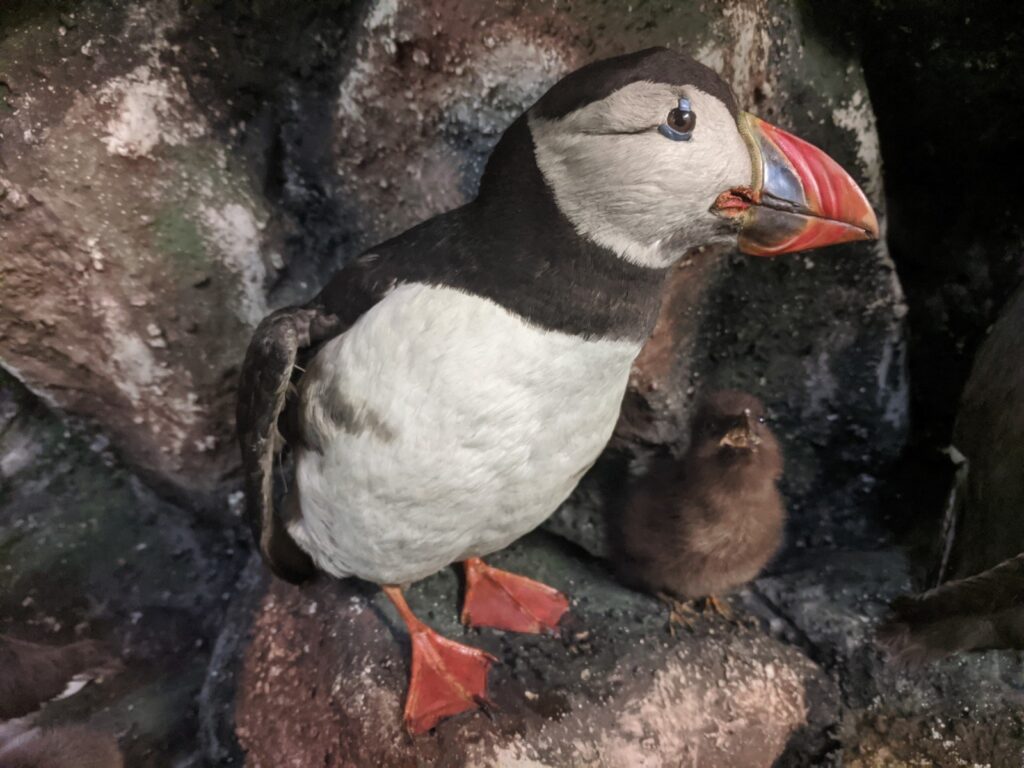Puffin
Puffins are unmistakable birds with their black back and white underparts, distinctive black head with large pale cheeks and their tall, flattened, brightly-coloured bill. Its comical appearance is heightened by its red and black eye-markings and bright orange legs.
Used as a symbol for books and other items, this clown among seabirds is one of the world’s favourite birds. With half of the UK population at only a few sites it is an Red List species.
Breeding behaviour
Where possible, the birds excavate a nesting burrow into the soil. Sometimes they will make use of Manx shearwater or rabbit burrows. Where burrowing is not possible, the birds nest under boulders or in cracks and cavities in cliffs.
Puffins lay only a single egg, in late April or early May. Both parents incubate it for 36-45 days, and they share the feeding duties until the chick is ready to fledge.
The fledging period is very variable, ranging from 34 to 60 days, depending on the area and year.
Puffins usually reach breeding age at 5-6 years old, and often live for 20 years.

Puffin and its chick, assembled during the heyday of Victorian collecting and prepared by the finest taxidermists.
On display at Kendal Museum.
Main threats to puffins
The puffin is included on the Red list of UK Birds of Conservation Concern after being listed as Vulnerable on the IUCN Red List.
The main threat to puffins is the changes in distribution and numbers of small fish, while ground predators (eg rat, mink, cat) introduced to breeding colonies and pollution are also serious hazards.
For instance, oil leaked from the Torrey Canyon in 1967 killed 85 per cent of the French puffins. Because of their low reproductive rate, puffins can take decades to recover from this kind of incident.
Because the puffin is so widespread, the only realistic conservation measures are sustainable exploitation of the seas, a reduction in incidence of marine pollution, and preventing ground predators reaching nesting colonies.
Reference; The RSPB Wildlife Charity: Nature Reserves & Conservation, BBC One – Wild Isles

